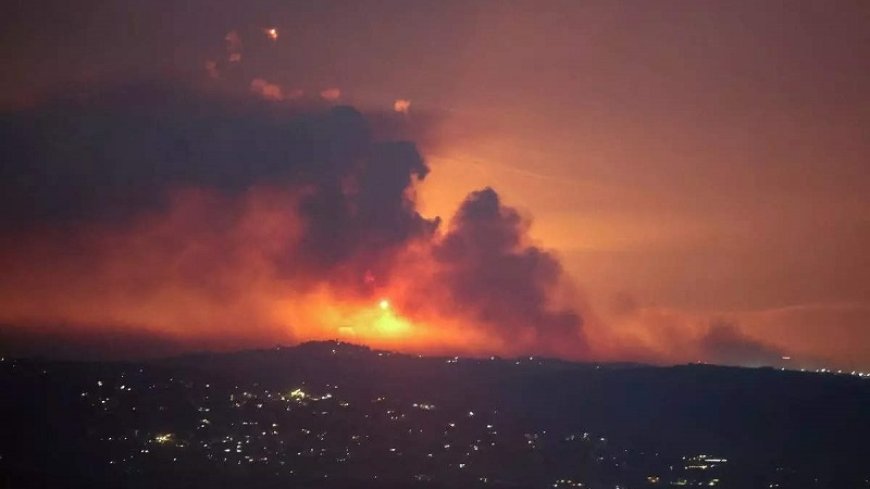A New Dawn of Resistance Against Israeli Occupation: How Hezbollah’s Missile Revenge Shakes Israel

By: A. Yeganeh
While millions were making their pilgrimage to Karbala on the day of Arbaeen, the most important day in the Shia Muslims’ calendar, an unprecedented event struck Israel and signaled a turning point in the ongoing conflict in the Middle East. Through years of intelligence work and meticulous planning, Lebanon's Hezbollah executed a surprise operation against the Israeli army, thereby showcasing an emerging level of tactical superiority as Hezbollah effectively infiltrated the depths of the occupied Palestinian territories, employing both drones and cruise missiles, hitting vital targets. This marked the initial phase of a more extended retaliation strategy for the recent assassination of Hezbollah's legendary commander, Fuad Shukr, with more steps to come in the future.
According to observers, the intelligence victory by Hezbollah was a decisive setback to Israel, which had long taken pride in the capabilities of its spying agencies. When Palestinian resistance outmaneuvered the Israeli intelligence apparatus during Operation Al-Aqsa Storm, it completely unraveled the Israeli security establishment, debunking the myth of Israel's military invincibility. Hezbollah's recent attack further underscored this failure by deceiving Israel's much-vaunted air defense systems into engaging with decoys, thereby enabling the primary assault to strike its intended target without any obstruction. This operational achievement will unquestionably undermine the long-standing perception of Israeli intelligence supremacy and enable the Iran-led Axis of Resistance to carry out subsequent raids with more confidence.
The implications of this multi-stage operation are catastrophic for the Israeli regime. Netanyahu's administration, which is already dealing with an unrelenting wave of domestic demonstrations and the continuing war in Gaza, now faces the threat of the conflict spilling over into the occupied territories. The ongoing campaign by the Axis of Resistance has the potential to undermine Israel's security, ultimately resulting in the collapse of Netanyahu's fragile coalition and the end of his political career. Yemen, Iraq, Lebanon, and Iran are prepared to disrupt daily life in Israel and place the occupied territories in a state of indefinite siege by launching attacks against them over months.
In tandem with military pressures, Iran and other regional players have continuously called for peace in Gaza. Negotiations mediated by Egypt and Qatar have produced no significant results so far, and despite the direct participation of the US Secretary of State, a truce remains elusive. One could interpret Hezbollah's strike as a warning, suggesting that further escalation is feasible unless the Israeli regime takes concrete measures to halt its ethnic cleansing in the Gaza Strip. The warning is clear: without prompt action, the Axis of Resistance will ramp up its efforts, making subsequent strikes even more destructive.
Hezbollah's efforts not only call for an end to the carnage in Gaza but also mark the beginning of an entirely new security equation. This formula seeks revenge for the frequent assassinations carried out by the Israeli regime across the Axis of Resistance's geography. With each operation, the resistance demonstrates its military might, delivering a message of fear not just to Israel but to the whole Western bloc that backs it. The growing number of attacks by the Axis of Resistance continues to remind us that Israel's assassinations and disregard for other countries' territorial integrity shall have severe repercussions in the days to come.













































